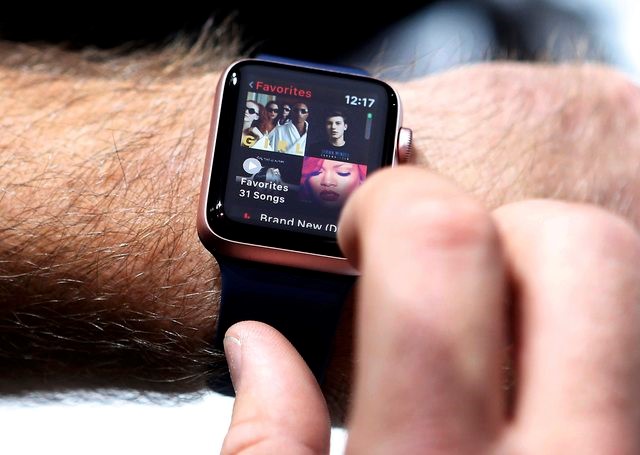By Julia Love
SAN FRANCISCO (Reuters) - Two years after unveiling the Apple Watch with apps and styles that tried to appeal to every need and every customer, Apple Inc (NASDAQ:AAPL) has honed its marketing strategy, debuting a second generation product aimed squarely at the health and athletic audience.
The focus on fitness will enhance the watch's appeal to its core audience but also cements its status as a niche device, analysts said.
“Apple is responding to what has resonated with customers,” said analyst Jan Dawson of Jackdaw Research. “The problem is there are only so many people who want to wear a health and fitness device. If they want this to be really massive, they’re going to have to go broader.”
The first new device released under Chief Executive Tim Cook, the Apple Watch has not attracted a mass audience, selling 1.6 million units in the second quarter, down more than half from a year ago, in the run-up to the new version, IDC data showed.
Apple's original pitch touted the ability to send doodles, make phone calls and track fitness, while the company described it as essentially a fashion accessory.
But at a San Francisco launch event on Wednesday, where the iPhone 7 also debuted, Apple Watch videos, advertisements and demos focused narrowly on features for health enthusiasts, with the notable exception of a Pokemon Go app.
The new Watch starts at $369, includes a GPS chip, and is waterproof. Apple designed a special edition with sports giant Nike Inc (NYSE:NKE).
Exercise buffs on social media cheered the new features, particularly the internal GPS system designed for runners who want to track workouts without dragging along their phones.
“At last Apple Watch is something I can use as a runner,” Ian Bignell (@eyan_b) wrote on Twitter.
Still, the device is likely to remain a niche offering, said Colin Gillis, an analyst with BGC Partners.
“It’s becoming a more interesting product, but it is not going to be able to meaningfully impact the bottom line if iPhones slow down,” Gillis said.
Apple has not broken out Watch sales, but Wall Street analysts suspect it is a small and growing contributor. Sanford Bernstein analyst Toni Sacconaghi estimates the watch will generate $4.1 billion in revenue for Apple this year, up from $2.7 billion in 2015.
IDC analyst Ryan Reith called the new version a "great incremental improvement" and predicted it would outsell the first version, in part because of its appeal to the fitness audience. But he said it faced challenges, such as competing with smartphones for consumer spending.
While the focus on fitness helps, Apple still needs a breakthrough app to nudge the smartwatch into the mainstream – and it remains unlikely to find it in Pokemon Go, the popular augmented reality game that is coming to the gadget later this year, Gillis said.

“The killer app for the watch remains to be seen,” he said.
(Additional reporting By Peter Henderson; Editing by Bill Rigby)